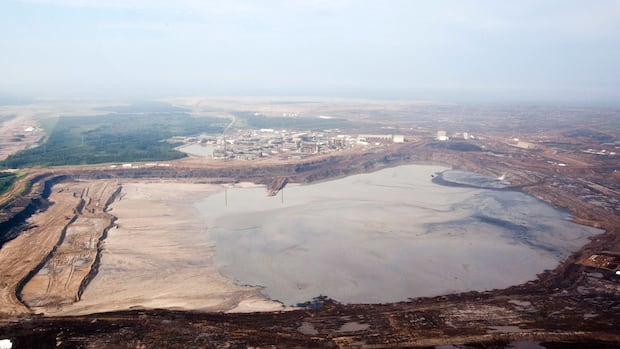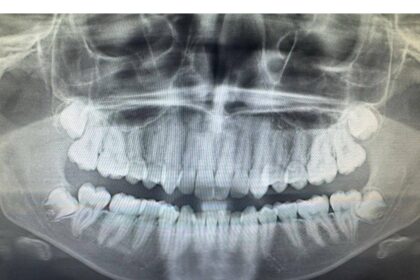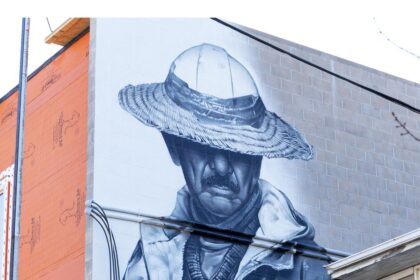NorthThe Fort Chipewyan Métis Nation is rejecting Alberta’s recommendations for managing oilsands water tailings, alleging “industry bias, lack of scientific integrity, and the absence of meaningful Indigenous inclusion.”‘If the water isn’t good enough for reuse in production, it’s not clean enough for our rivers’Avery Zingel · CBC News · Posted: Sep 23, 2025 9:27 PM EDT | Last Updated: September 24The Syncrude tailings pond and oilsands facility seen from a helicopter near Fort McMurray, Alta., in 2012. (Jeff McIntosh/The Canadian Press)The Fort Chipewyan Métis Nation is rejecting a committee’s recommendations for managing Alberta’s oilsands water tailings, alleging “industry bias, lack of scientific integrity, and the absence of meaningful Indigenous inclusion.”Alberta’s oilsands committee issued nine recommendations on tailings management. One of them is for Canada and Alberta to expedite the creation of standards to release treated oilsands mine water.Fort Chipewyan Métis President Kendrick Cardinal said that can’t go ahead until independent Indigenous-led studies are complete, including a $12-million community health impacts study in his community, downstream from the oilsands.”Our health is under-researched but the risks are undeniable,” he said.”We’d like to have no release, none whatsoever. We should have immediate protective measures while research is underway and commitment from all levels of government to act on the findings.”The recommendationsIn May 2024, Alberta established its Oil Sands Mine Water Steering Committee. Its mandate is to assess options to safely manage water in oilsands tailings ponds, provide recommendations to accelerate plans for addressing oilsands mine water and tailings ponds, and protect the health of downstream communities and their environment.In a Sept. 15 email to CBC News, Ryan Fournier, a spokesperson for Alberta’s environment minister, said that the committee’s advice is backed by “extensive study and analysis.””These nine recommendations have been accepted and we are exploring them further. Once the evaluation is complete, government will implement a safe and reasonable plan that is supported by science and protects communities in the region and downstream,” Fournier wrote. The recommendations report states operators need alternative technologies to treat mine water. Recycled water is now highly salinated and “treatment options are becoming a challenge,” the report states.It also recommends treating and releasing tailings water due to the risk of structure failure, and “accidental releases” of untreated mine water, which the committee said would threaten wildlife, aquatic ecosystems and people downstream. A recent Canadian Medical Association Journal article disputes the safety of this plan and calls for a ban on potential release until a rigourous study on downstream health impacts is complete.Cardinal agrees that until the study results are released, the federal government should explore alternatives including reusing tailings water for oilsands operations.”If the water isn’t good enough for reuse in production, it’s not clean enough for our rivers,” he said.Fort Chipewyan Métis Nation President Kendrick Cardinal says Alberta should halt any movement on the Alberta working groups’ recommendations until it adequately consults affected Nations. (Regional Municipality of Wood Buffalo/YouTube)Cardinal says communities downstream should rally together to ensure their voices are heard. “I’ll do whatever I can to protect it, whether it’s standing at the front lines and put a blockade so nobody is allowed to go to industry anymore, I’ll do that,” he said. Fort Chipewyan Metis Nation will work with the federal Crown-Indigenous Relations working group, which Cardinal describes as a “legitimate science and rights-based process.”Cardinal says Fort Chipewyan residents’ distrust of Alberta’s process is rooted in what he describes as an ongoing lack of transparency.”We have spills and there’s always been delayed reporting of incidents like tailings ponds leaks,” he said. The Alberta Government maintains its oilsands monitoring program is the world’s largest, and keeps downstream communities informed about the safety of their air and water.Cardinal said oilsands development affects his community’s physical and mental health — people in Fort Chipewyan fear their land-based foods are contaminated and make them sick. Cardinal said Alberta should halt any movement on the Alberta working groups’ recommendations until it adequately consults affected Nations. CBC News requested further information from the Alberta Government and its environment minister on criticisms of its oilsands committee recommendations but they declined further comment. ABOUT THE AUTHORAvery Zingel is a reporter with CBC North in Yellowknife. Email Avery at avery.zingel@cbc.ca.
Thursday, 5 Mar 2026
Canada – The Illusion
Search
Have an existing account?
Sign In
© 2022 Foxiz News Network. Ruby Design Company. All Rights Reserved.
You May also Like
- More News:
- history
- Standing Bear Network
- John Gonzalez
- ᐊᔭᐦᑊ ayahp — It happened
- Creation
- Beneath the Water
- Olympic gold medal
- Jim Thorpe
- type O blood
- the bringer of life
- Raven
- Wás’agi
- NoiseCat
- 'Sugarcane'
- The rivers still sing
- ᑲᓂᐸᐏᐟ ᒪᐢᑿ
- ᐅᑳᐤ okâw — We remember
- ᐊᓂᓈᐯᐃᐧᐣ aninâpêwin — Truth
- This is what it means to be human.
- Nokoma











